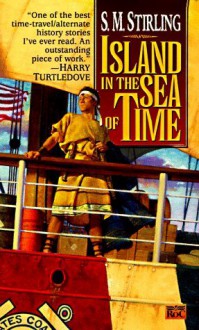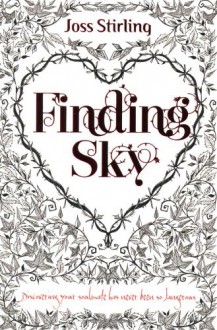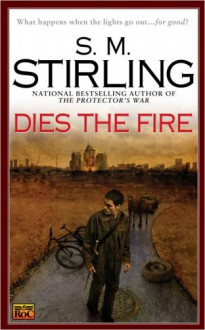
I’ve been a fan of alternate history ever since I first picked up a copy of the first book in Harry Turtledove’s Worldwar series. In fact, it is what led me to Eric Flint’s 1632, which served as a huge inspiration for Children of the Halo.
Recently, it was suggested by someone on my Facebook page that I check out SM Stirling’s Island in the Sea of Time. Reading the synopsis, I realized with utter glee that, like 1632, it was another story which paralleled the idea behindChildren of the Halo. It dealt with the residents of the island of Nantucket, off the coast of Massachusetts, and a Coast Guard sailing ship being suddenly whisked away to another time. In this case, circa 1250 BCE.
First of all, I’d like to commend Mr. Stirling. The scenes in which the Coast Guard ship, the Eagle is commanded by its Captain, Marian Alston, were impeccably researched. Of interesting note was the inclusion that the captain was also a divorced black lesbian, thus opening the novel to deal with issues of social justice, as there is no small amount of prejudice against her from some of the people among the citizenry of the Republic of Nantucket. Additionally, I was ecstatic to see that nearly right from the start, the realization that trading with the pre-farming societies of Native America wouldn’t yield what was needed to survive, the crew of the Eagle took to crossing the Atlantic, from the other side, about three thousand years early.
The Europe we find on the other side of the pond is distinctly different from the Europe of modern day, or even of the early modern era, as we see in Flint’s 1632. Britain is populated mainly by warring tribes. The Empires of the day are in short supply. Egypt, Tartessos, Mycenae and Babylon seem to be the only civilizations large and powerful enough to speak of. Still, the people of Nantucket manage to befriend and assist the Earth Folk, a pre-Celtic civilization facing extermination at the hands of the Sun People, invaders from the European mainland.
I felt the execution of the story was both compelling and informative. I had a very easy time turning the page again and again, and rather enjoyed the turnabout introduced as one of the modern Americans turned against his people to seize power of his own by installing himself as a King of sorts amongst the Sun People, done by killing several Americans and stealing a sailing yacht.
During the first half of the book, I must admit I was rather annoyed by some of the characters, and at first I was afraid that the author was presenting many of the male characters as either incompetent, or morally bankrupt, while the female characters persisted on as beacons of goodness, but I was pleasantly surprised as I discovered that this wasn’t entirely the case. Those elements are present, yes, but nearly as soon as I expected the author to continue with the bias, he turned it on its head through a brutal, unforgiving sequence in which men and women are literally eaten by an Olmec Jaguar cult, and the ringleader gets the chance to see what her concept of justice leads to for those who followed her.
All in all, I rather enjoyed Island in the Sea of Time, and I intend to pick up the sequels, Against the Tide of Years and On the Oceans of Eternity and add them to my collection as well. I suggest you take the time to give it a read.


 Log in with Facebook
Log in with Facebook 








